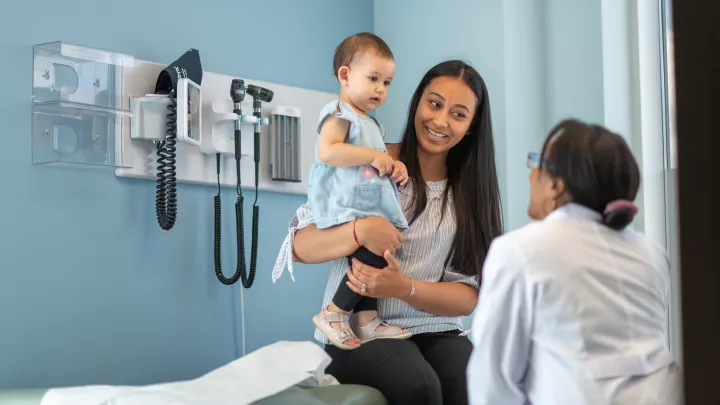Brain Tumor Research
Our Brain tumor experts at Children’s Hospital Los Angeles are at the helm of groundbreaking research. These efforts are paving the way for children worldwide to achieve better outcomes and quality of life.
Brain Tumor Research: Why Choose Us
Children’s Hospital is a leader in pediatric brain tumor research. Our physician-scientists and researchers are also conducting lab studies (basic and translational scientific research) to improve understanding of the biology of brain tumors. These studies will usher in a new era in pediatric brain tumor therapies.
Our research is pushing the boundaries of what’s possible for treatment and survival. We partner with experts across the globe to make these new therapies available to patients faster through brain tumor clinical trials.
Research efforts include:
- Understanding the biology of pediatric brain tumors
- Lab testing of new treatments against brain tumors
- Combining therapies in new ways
- Developing more precise therapies
- Helping children avoid treatments that impair neurologic function
- Learning more about why brain tumors recur
- Making advances in brain tumors that currently have poor outcomes
Pediatric Brain Tumor Research
Brain tumor basic science and translational studies take place at The Saban Research Institute of Children’s Hospital Los Angeles. We are one of the nation’s most productive pediatric research facilities.
Our focus areas include:
Immunotherapy for brain tumors
Our researchers are exploring immunotherapy methods, such as cellular therapies and checkpoint inhibitors. Immune checkpoint proteins prevent the immune system from damaging normal healthy cells. Tumors take over these checkpoint proteins to prevent the immune system from attacking tumor cells. Immune checkpoint inhibitors are substances that block these proteins, making it possible for the immune system to fight tumor cells.
Magnetic resonance (MR) spectroscopy
Children’s Hospital is a leader in MR spectroscopy. This imaging technique shows cell chemicals with unusually high activity. These high chemical levels indicate how aggressive a brain tumor is.
Our expertise in MR spectroscopy helps us detect small details that lead to precise interpretations. We use MR spectroscopy to diagnose brain tumors and track treatment response. Learn more about how our neuroradiology experts use MR spectroscopy.
Patients with certain cancer types, such as medulloblastoma, undergo MR spectroscopy in addition to MRI. We keep data from these scans in a secure repository that supports brain tumor imaging research. Our repository holds one of the world’s largest MR spectroscopy data sets. Researchers use the information to improve diagnostic capabilities and better predict treatment outcomes.
Brain tumor microenvironment
Physician-scientists are exploring the brain tumor microenvironment, unique biologic factors that foster brain tumor growth. Learning how these factors work in specific tumors and mutations will help us develop treatments that provide better outcomes.
Our efforts include:
- Maintaining a biobank (large collection of tissue samples) dedicated to brain tumor microenvironment studies
- Learning more about how the PID1 gene works
- Exploring the epigenetics of pediatric brain tumors
New treatment approaches for DIPG
Physician researchers are developing new approaches for diffuse intrinsic pontine glioma (DIPG). This brain tumor currently has poor survival rates, but our researchers are working to change that. We are uncovering the biologic processes that cause this type of tumor and we are exploring innovative new nonsurgical therapies.
Surgery and chemotherapy don’t work for DIPG. Hundreds of clinical trials have yielded few clues about how best to treat it, but researchers at Children’s Hospital are making progress. We developed a realistic model of the tumor, including a focus on the tumor microenvironment, which helps us test new treatment methods.
Among the advanced approaches being developed by CHLA brain tumor researchers is the use of smart nanomaterials to deliver treatments with unprecedented precision. Nanoparticles are so small they are undetectable to the human eye. They are also remarkably precise at locating specific targets, like biologic markers on tumor cells. Combining nanoparticles with existing therapies may help us deliver these treatments directly and more effectively to DIPG tumor cells.
Brain Tumor Care at Children’s Hospital Los Angeles
Research is one of many areas of expertise at our Brain Tumor Center. Additional services include neurosurgery, radiation oncology, diagnostic testing and more. Explore our Brain Tumor Center.
Contact Us
To schedule an appointment with the Brain Tumor Center at Children’s Hospital Los Angeles, call 323-361-6600.


